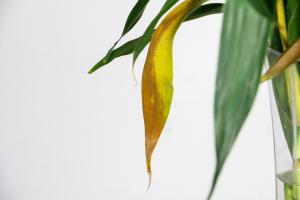What Does a Cracker Plant Do
A cracker plant, also known as a petrochemical complex or a chemical plant, is an industrial facility that produces a variety of chemicals and petrochemicals from crude oil and natural gas. It is a complex operation that requires a high level of technological expertise and careful planning.
The Process of a Cracker Plant
The process of a cracker plant involves several steps. First, crude oil or natural gas is piped to the plant and stored in large tanks. From there, it is converted into feedstocks, which are the raw materials used to produce chemicals such as ethylene, propylene, and butadiene.
The feedstocks are then fed into furnaces, where they are "cracked" or broken down into smaller molecules through a process called pyrolysis. This creates olefins, which are the basic building blocks of many chemicals. These olefins are then purified to remove impurities before being processed into the final chemicals.
The Products of a Cracker Plant
The products of a cracker plant are many and varied. Some of the most commonly produced chemicals include:
Ethylene, which is used to make products such as plastics, synthetic fibers, and detergents
Propylene, which is used to make products such as paints, coatings, and adhesives
Butadiene, which is used to make synthetic rubber
Benzene, which is used to make products such as pesticides and plastics
Xylene, which is used to make products such as solvents and plastics
In addition to these chemicals, cracker plants may also produce a variety of other products such as fuel, lubricants, and asphalt. All of these products are produced through careful control of the various steps in the process, and must meet strict quality standards before being sold to customers.
The Importance of Cracker Plants
Cracker plants are an important part of the modern industrial economy. They provide the building blocks for a wide variety of products, from plastics and synthetic fibers to pharmaceuticals and electronics. Without these chemicals, many of the products that we rely on every day would not exist.
In addition to their economic importance, cracker plants also carry with them significant environmental and safety concerns. The various chemicals used and produced by these plants can be hazardous if not handled properly, and there is always the risk of spills, fires, or other accidents. As such, cracker plants must be carefully regulated and managed to ensure the safety of workers, nearby residents, and the environment as a whole.
Conclusion
In conclusion, a cracker plant is an essential part of the modern industrial economy. It produces a wide variety of chemicals and petrochemicals that are used in countless products around the world. While the process carries with it significant risks and challenges, proper regulation and management can help to ensure that these plants operate safely and effectively for the benefit of all.

 how many times do yo...
how many times do yo... how many planted tre...
how many planted tre... how many pine trees ...
how many pine trees ... how many pecan trees...
how many pecan trees... how many plants comp...
how many plants comp... how many plants can ...
how many plants can ... how many plants and ...
how many plants and ... how many pepper plan...
how many pepper plan...































